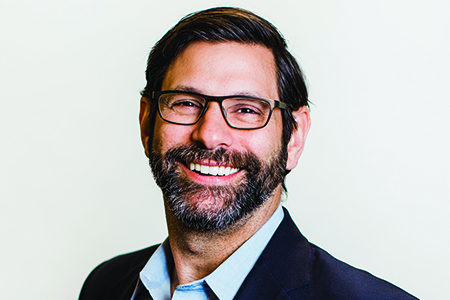Companies To Watch: Angion
By Wayne Koberstein, Executive Editor, Life Science Leader
Follow Me On Twitter @WayneKoberstein
Saving the kidneys and other organs before most injury occurs
SNAPSHOT

WHAT'S AT STAKE
Ask Angion’s CEO Jay Venkatesan directly what’s at stake in his company, and he answers in clear terms: “The stakes for acute organ injury are incredibly high, because there are really no good therapies for something like acute kidney injury.” Once damaged, kidneys frequently fail to recover. The consequences are often permanent and progressive, until only organ graft or transplantation offers any hope for improving and prolonging life.
“In transplant, if you have delayed graft function, meaning you get a kidney that doesn’t work very well after surgery, the average life expectancy of that kidney is half as long as the average life expectancy of a kidney with no DGF,” Venkatesan says. “If we can reduce DGF, we can hopefully increase the duration of kidney transplant survivals, so that these patients keep their kidneys’ function and avoid dialysis, and potentially increase the survival of those kidneys by years.” Acute kidney injury after cardiac surgery is associated with very high mortality in patients and can add expenses of $20,000 to $40,000 per patient. Acute kidney injury from all causes costs the U.S. health system an estimated $20 to $40 billion a year in direct hospital costs, and many patients then progress to chronic kidney disease. “If we can make a difference there, we can save lives as well as help the system save money. That’s what we’re trying to achieve.”
Betting on Angion is also a high-stakes game for investors. As recent deals and setbacks in the nephrology space have highlighted, clinical development has been unkind to developers even as excitement builds in the discovery and preclinical stages. Here, the therapeutic mechanism of the company’s approach becomes an important distinguishing factor. Other, “competitor” drugs typically try to block specific pathways that drive the early cascade of acute injury. But Angion’s drug aims at activating pathways to reverse most of the damage and impede the cascade of further injuries following the initial insult.
HGF is not really constrained to activity in the kidney. About 25 years of research at the company and elsewhere have shown HGF acts similarly in all organs to protect and repair damaged tissue. Its ultrabrief half-life of only four minutes makes simple protein replacement impractical; hence, the company’s multidecade, and ultimately fruitful, search for the small molecule that can mimic the action of HGF.
Angion’s Phase 3 trial design may also play a role in the race for first place in this space. Venkatesan says failed trials by others such as Quark and Alexion accepted all patients at high risk for DGF, looking to reduce the overall incidence. “The problem is two-thirds of patients don’t have delayed graft function after their surgery, so it’s really hard to show that you’ve had a benefit.” Angion’s trial is studying only patients whose kidneys already show early signs of DGF. That is one reason I believe Angion deserves at least as much attention as the headline-grabbing but early-stage deals elsewhere in this area.
Vital Statistics
Employees: 40
Headquarters: San Francisco
Finances
$55M Equity raised to date; last round July 2018
Research Partnership Funding
SINOVANT partnership for commercialization of ANG-3777 in China
$75M in total government grant funding
Other Partners
DEPARTMENT OF DEFENSE (DOD) grant/collaboration with Nephrotic Syndrome Study Network (NEPTUNE), to investigate ANG-3070
Additional ongoing grants for Angion’s aldosterone synthase inhibitor
Latest Updates
March 2019: ANG-3070, a PDGF-R inhibitor to treat fibrotic diseases, including idiopathic pulmonary fibrosis and chronic kidney disease, to begin Phase 1 studies in 2H 2019
January 2019: DOD grant for advancement of ANG-3070 in treatment of chronic kidney disease, including focal segmental glomerulosclerosis
